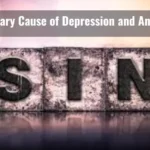HarassmentView All
Empowering Clear Communication Skills Against Harassment
Unlock the power of Clear Communication to combat harassment. Empower yourself with effective communication skills for a safer, respectful environment.
Fostering a Culture of Respect and Open Communication
“Build a positive workplace with our guide on fostering a Culture of Respect and Open Communication. Enhance collaboration and harmony today!”
The Role of Empathy in Harassment
“Explore the pivotal Role of Empathy in Harassment: its impacts, benefits, and potential drawbacks. Dive in for insights.”
Leveraging Technology For Harassment Prevention and Reporting
Unlock a safer workplace with cutting-edge technology solutions! Explore Harassment Prevention and Reporting for a secure and empowered environment.
Quid Pro QuoView All
 12 Core Elements of Quid Pro Quo Harassment
12 Core Elements of Quid Pro Quo Harassment Explaining Non-Sexual Quid Pro Quo Harassment
Explaining Non-Sexual Quid Pro Quo Harassment Tangled Web of Bribery and Quid Pro Quo
Tangled Web of Bribery and Quid Pro Quo 14 Powerful Resources for Victims of Quid Pro Quo Harassment
14 Powerful Resources for Victims of Quid Pro Quo Harassment Fear and Silence in Quid Pro Quo Harassment
Fear and Silence in Quid Pro Quo Harassment Quid Pro Quo Sexual Harassment in Showbiz: 14 Infamous Cases
Quid Pro Quo Sexual Harassment in Showbiz: 14 Infamous Cases Explaining Color-oriented Quid Pro Quo Harassment
Explaining Color-oriented Quid Pro Quo Harassment Introduction to Coercive Quid Pro Quo Harassment
Introduction to Coercive Quid Pro Quo Harassment Quid Pro Quo Harassment and Retaliation
Quid Pro Quo Harassment and Retaliation 20 Quid Pro Quo Harassment Examples and How to Stop Them
20 Quid Pro Quo Harassment Examples and How to Stop Them Social GoodView All

Georgia DA Fani Willis Fights Back Against Allegations in Trump Probe
Fulton County DA Fani Willis faces allegations of misconduct in Trump probe. Legal analyst Michael Moore weighs in on the unfolding legal drama.

Hidden Quid Pro Quo Harassment in Housing
Uncover the unseen: Navigate the shadows of housing with insights on Quid Pro Quo Harassment in Housing. Your guide to recognizing and addressing hidden challenges.
















































